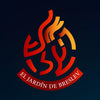
Parasha Shemot
“And it came to pass during those many days, that the king of Egypt died, and the children of Israel sighed because of their toil and cried out; and their sighing because of their toil went up to the Creator. The Creator heard their cry, and God remembered His covenant with Abraham, with Isaac, and with Jacob.
(Shemot-Exodus 2:23-24)
The people of Israel cried out to the Eternal because of the terrible Egyptian slavery, and the Torah tells us that God heard their cry, that is, their prayer. The verses also recall the covenant between God and the holy Patriarchs regarding the redemption of the people of Israel from Egypt. The entire slavery in Egypt was, in a sense, a Divine decree, and God Himself had promised the patriarchs that after four hundred years of
slavery Israel would be redeemed and with a strong hand they would come out with great riches.
We may wonder why we say that Israel was redeemed through their prayers, given that the redemption from Egypt had already been established in the covenant that God made with the patriarchs.
This means that the Redemption would come anyway and without any special conditions, such as prayer. If this is so, why does the Torah emphasize that the Creator heard the cry and prayer of the people of Israel and that only then did the redemption take place?
From the verse it seems to be understood that only through the merit of prayer could they be redeemed…
We can answer by saying that The very essence of the Redemption was to establish a connection between Israel and the Creator, because without that connection the redemption has no meaning and no benefit.
As is well known, prayer connects a person with their Creator, so when the people of Israel cried out to the Eternal, they merited being redeemed through a connection and a relationship of belonging with the Creator.
Prayer was what gave content and meaning to the redemption, since otherwise they would not have merited receiving the Torah. Therefore, even though they would have been redeemed even without prayer (due to the strength of
of the covenant established between God and the patriarchs), the prayer of the people of Israel to the Blessed Creator caused that redemption to take place in a perfect and absolute way,
feeling that everything comes from Him. That is why the Torah took the trouble to highlight and remind us of the prayer that the people offered to God before the redemption.
The Gemara (Berachot 10a) tells what happened to King Chizkiahu. The prophet Yeshua told Chizkiahu that he was going to die and that he would lose not only his life in this world but also his life in the World to Come, because he had not married and had failed to fulfill one of the mitzvot of the Torah. Upon hearing this, Chizkiahu began to weep and asked the prophet to allow him to marry his daughter. Yeshua replied that it was too late, that the decree had already been signed.
King Hezkiah didn't accept that answer; he asked Yeshua to finish conveying the prophecy and leave. Hezkiah climbed into his bed, because, as we know, death begins in the legs. When he lost feeling in his legs, Hezkiah cried out bitterly, asking God to give him another chance and lengthen his days so that he could marry. God accepted his request and granted him another fifteen years to correct his actions and marry.
This was because God recognized that Hezekiah's prayer came from deep within him, and we know that even when a person has a sharp sword hanging over his neck, he should not lose hope of receiving Divine mercy!
This is not understood.The Prophet Yeshua knew that as long as the candle burns, it is still possible to correct mistakes; that is, King Hezkiah still had the opportunity to pray, asking Hashem to annul the evil decree. As we said, even in the most difficult times, it is forbidden to lose hope of receiving Divine mercy.
Why then did the prophet tell him it was too late? We would have expected Yeshua to at least pray for Hezkiah's benefit upon seeing his suffering, and not to immediately lead him to lose all hope.
The answer is that a person's prayer for himself is not the same as the prayer of others.
The prophet Yeshua knew that at the time the decree had been issued, only Hezkiah's prayer could reverse the situation; for his prayer would come from the depths of his heart, with all the strength and the right intentions.
Because the prayer of Hezkiah could be much more powerful than the prayer of Yeshua (because
a person's prayer for himself is more powerful), Yeshua did not pray for the king, because he wanted Hezkiah to cry out to God in the midst of his suffering and thus succeed in reversing the evil decree, without relying on the prophet's prayer.
This summary of the Parasha reminds us once again how important our prayer is and how even the greatest decrees can be transformed through prayer. Hashem wants us to be connected to Him!
Dedicated to the healing of all the sick in Am Israel and the world and to the success of all who need sustenance.
The Breslev Garden recommends:
